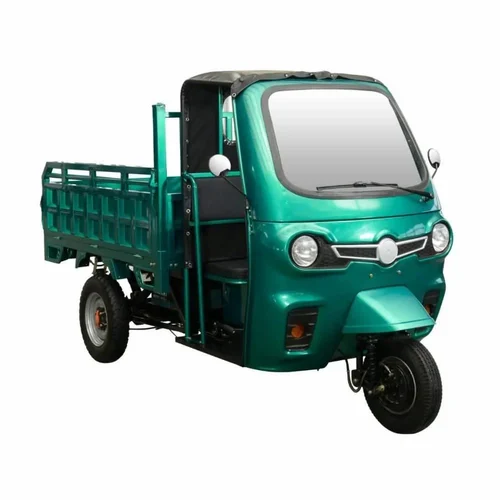India’s logistics and transportation industry is undergoing a major shift with the rising demand for eco-friendly and cost-effective solutions. Among the many innovations in the electric vehicle sector, the Electric Loading Auto has emerged as a game-changer. Designed specifically for carrying goods and managing last-mile deliveries, these three-wheelers are affordable, efficient, and environmentally friendly.
Small businesses, shopkeepers, delivery companies, and even large logistics players are increasingly adopting E Loader for their daily operations. With growing government support for electric mobility, this segment is expected to see exponential growth in the coming years.
What is an Electric Loading Auto?
An Electric Loading Auto is a battery-operated three-wheeler designed to transport goods. Unlike traditional diesel or petrol cargo vehicles, it runs entirely on electricity, producing zero emissions and offering low operating costs. These vehicles are equipped with powerful motors, durable batteries, and strong chassis to handle heavy loads.
Benefits of Electric Loading Auto
- Eco-Friendly
Since they produce no emissions, electric loading autos help reduce air pollution and carbon footprint. - Low Running Cost
Electricity is cheaper than petrol or diesel. Drivers save significantly on fuel expenses and maintenance. - High Load Capacity
Most electric loading autos can carry 500–1000 kg of goods, making them ideal for small and medium businesses. - Government Incentives
Under schemes like FAME II, buyers can avail subsidies, tax benefits, and loans for purchasing electric autos. - Durable & Reliable
Designed with strong frames and high-performance batteries, they are suitable for both urban and rural roads.
Applications of Electric Loading Auto
- E-commerce Deliveries – For transporting parcels and packages in cities.
- Grocery & Retail Stores – Perfect for delivering bulk orders and daily essentials.
- Water Can & Gas Cylinder Supply – Efficient for carrying heavy daily-use items.
- Construction Materials – Transporting sand, cement, tiles, and hardware.
- Agriculture & Farming – Carrying crops, vegetables, and farming supplies.
Cost & Investment
The cost of an E Rickshaw Loader in India usually ranges from ₹1.5 lakh to ₹3 lakh, depending on the model, load capacity, and battery type (lead-acid or lithium-ion).
For businesses, this is a one-time investment that can be recovered quickly due to:
- Low fuel costs
- Minimal maintenance expenses
- Daily rental opportunities (if used for business leasing)
Why Businesses Prefer Electric Loading Autos
- Affordable Ownership – Lower upfront costs compared to large cargo vehicles.
- Fast ROI – Investment can be recovered in less than a year for high-usage businesses.
- Versatility – Can be used for multiple sectors like logistics, retail, construction, and agriculture.
- Government Push – Increasing charging infrastructure and state-level EV policies are making adoption easier.
Future of Electric Loading Auto in India
The market for loader auto rickshaw is expected to grow rapidly in the next decade. With rising fuel prices, strict emission norms, and increasing e-commerce demand, these vehicles will become a preferred choice for last-mile and mid-mile deliveries.
Manufacturers are also introducing advanced models with lithium-ion batteries, fast charging, and GPS-enabled features to improve efficiency. This makes the electric loading auto an essential vehicle for India’s future transport needs.
Final Thoughts
The auto rickshaw dealership is not just a vehicle—it is a smart investment for businesses looking to cut costs, adopt green solutions, and ensure reliable goods transportation. With government support, increasing demand, and improved technology, the popularity of these vehicles will only rise in the future.
For entrepreneurs, logistics providers, and small shop owners, investing in an electric loading auto is a step toward sustainable growth and profitability.
Frequently Asked Questions (FAQ) about Electric Loading Auto
Q1. What is the price of an electric loading auto in India?
Prices generally range between ₹1.5 lakh and ₹3 lakh, depending on load capacity and battery type.
Q2. How much load can an electric loading auto carry?
Most models can carry 500–1000 kg, suitable for small and medium businesses.
Q3. What type of battery is used in electric loading autos?
They come with lead-acid batteries (affordable but shorter lifespan) and lithium-ion batteries (costlier but long-lasting and fast charging).
Q4. How much does it cost to run an electric loading auto daily?
Running costs are around ₹0.50–₹1 per km, making them far cheaper than petrol or diesel vehicles.
Q5. Can I get government subsidy on electric loading autos?
Yes, under the FAME II scheme and various state EV policies, subsidies and tax rebates are available.
Q6. How long does it take to charge an electric loading auto?
Charging time varies: 6–8 hours for lead-acid batteries and 3–4 hours for lithium-ion batteries.
Q7. Is an electric loading auto suitable for rural areas?
Yes, with strong chassis and durable motors, these vehicles perform well on rural and semi-urban roads.




















